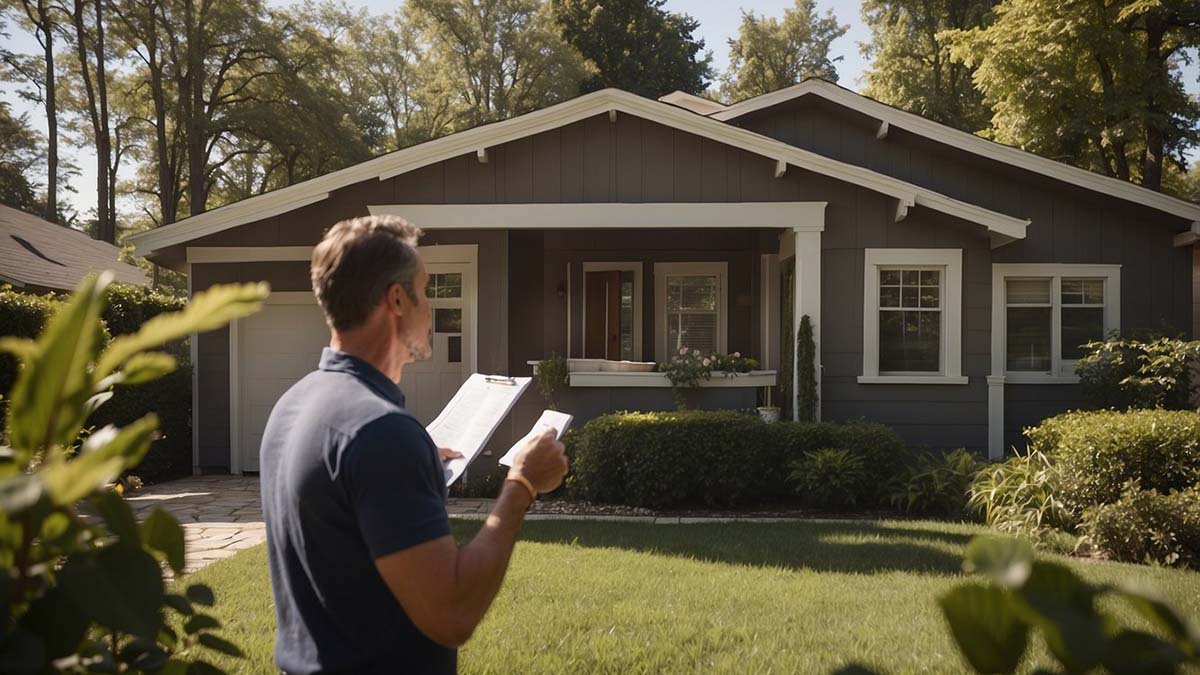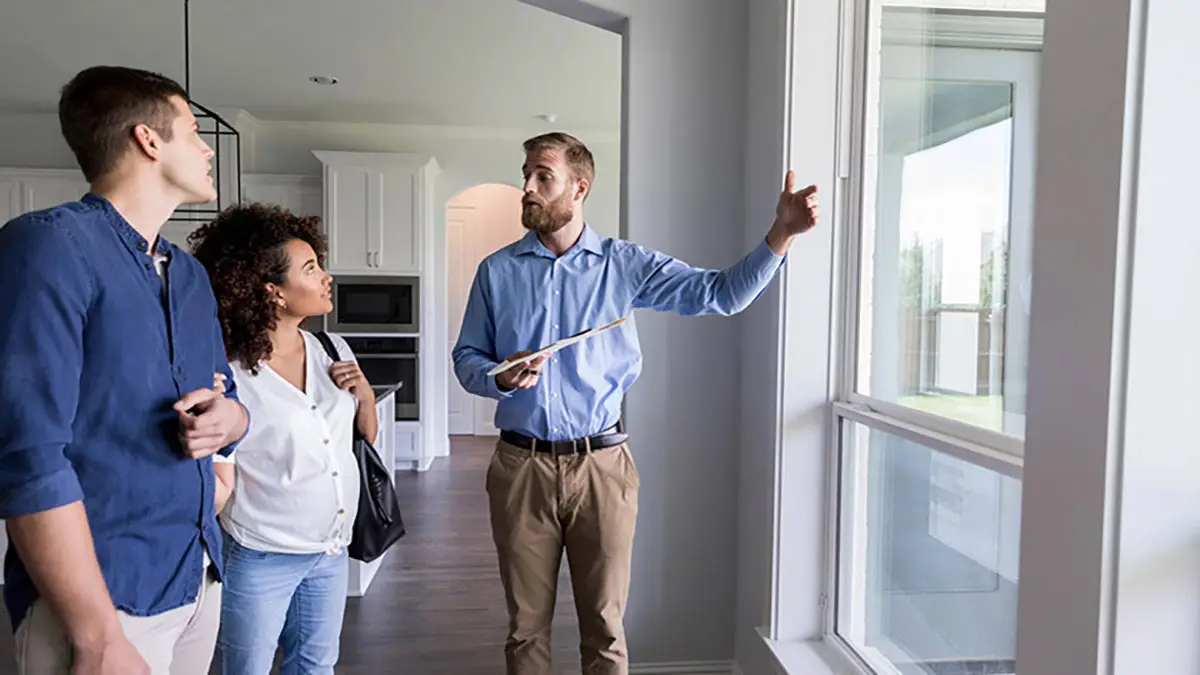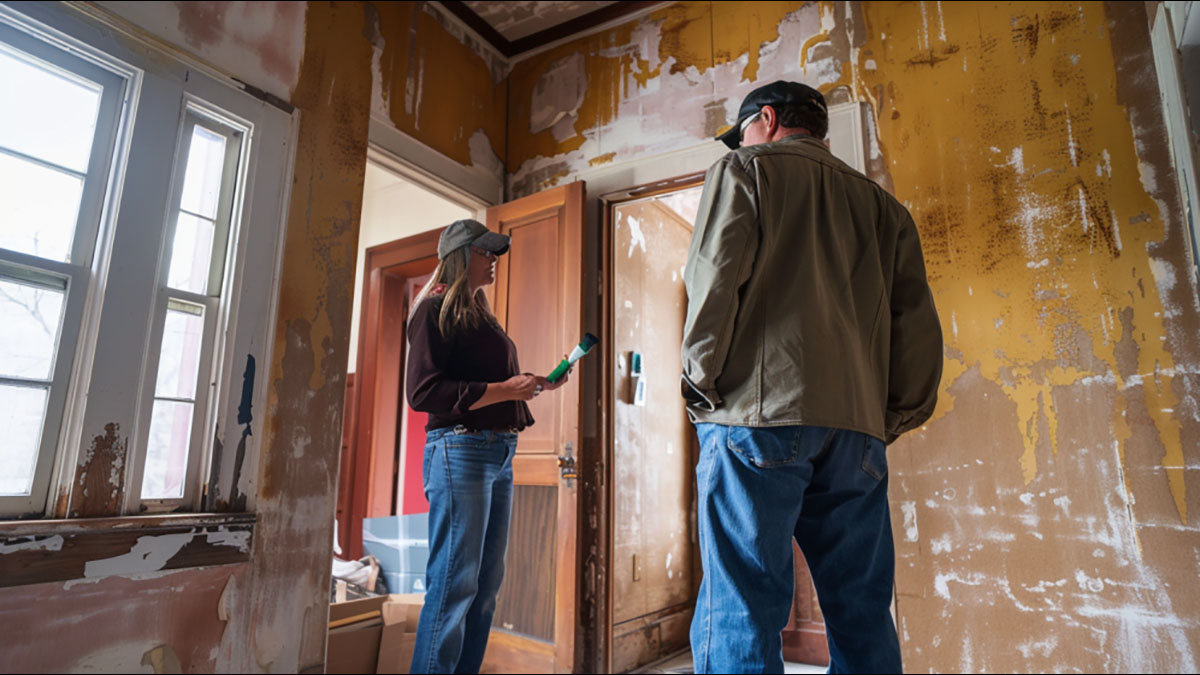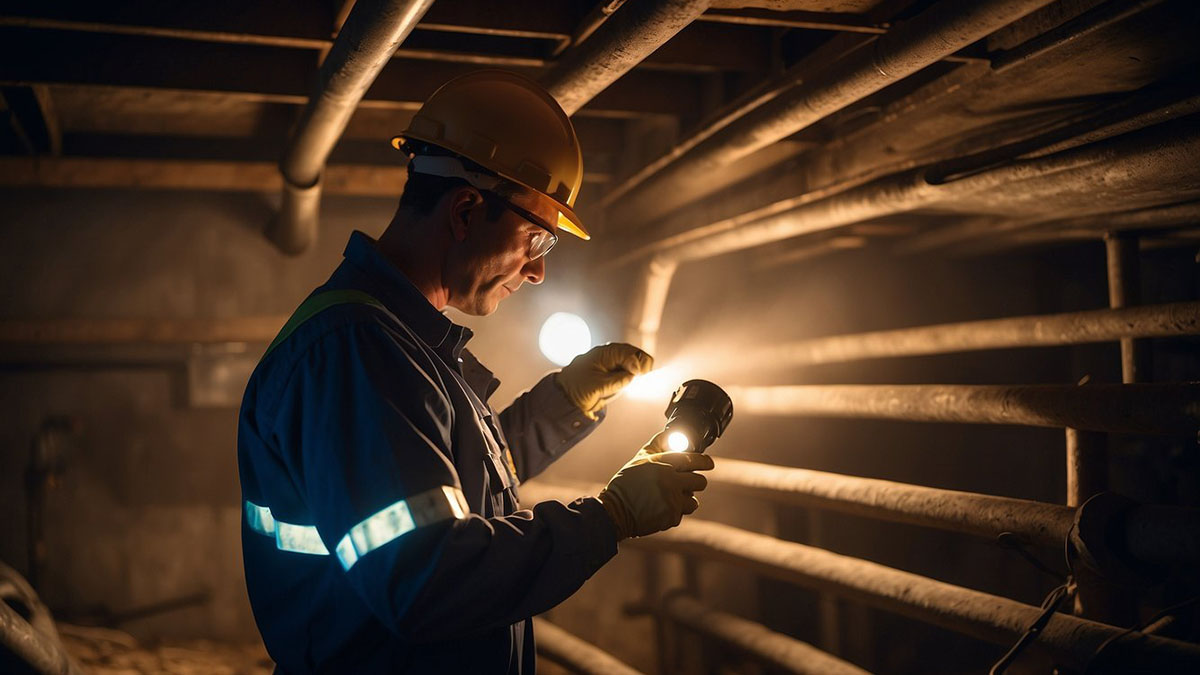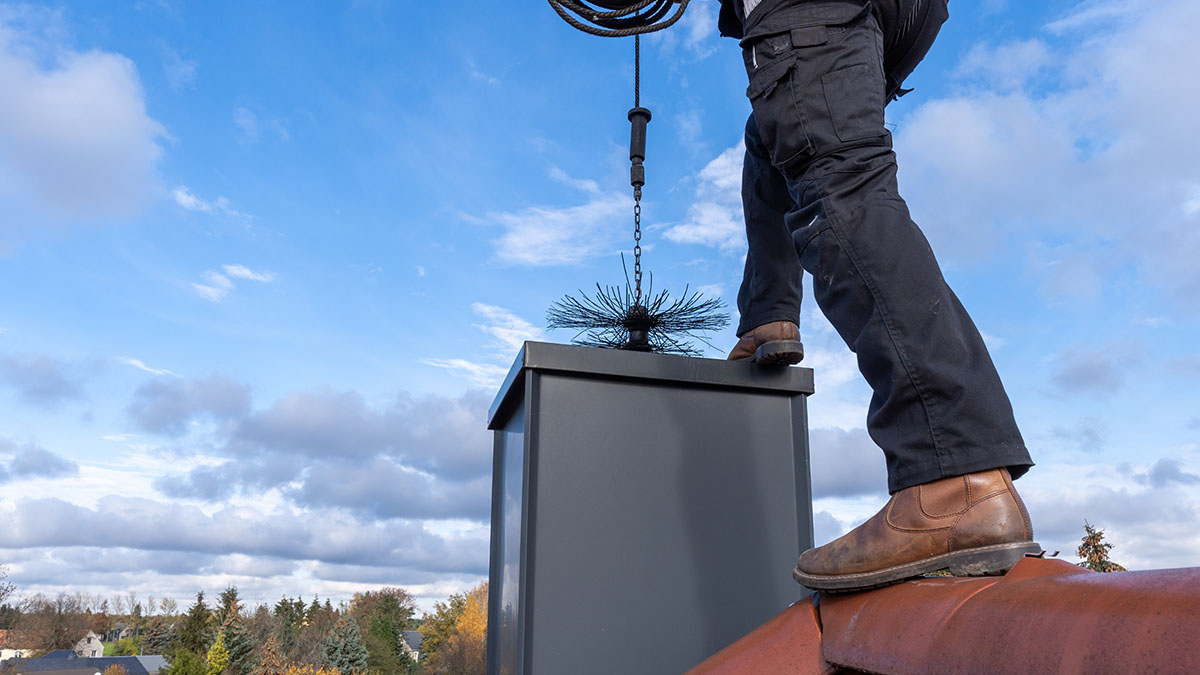What is a home inspection anyway? A professional home inspection is a crucial step when buying a home, and it can make or break your decision to buy the home. It’s important to understand exactly what a home inspector looks for so you know what to expect when they arrive at your potential new home.
We’ll cover topics such as what a professional home inspector will examine, how long home inspections typically take, and how to interpret their findings. With this information, you’ll be better equipped to make informed decisions about whether or not a house is right for you.

What is a Home Inspection?
A certified home inspection visually examines the overall home condition according to the inspection industry Standards of Practice. It’s conducted by a qualified home inspector who will provide you with an in-depth inspection report on any issues found, from major structural problems to safety issues needed.
During a home inspection, inspectors will check electrical systems, plumbing, roofing, windows, doors, and the foundation. They’ll also look for signs of pest infestation or water damage.
Most certified home inspectors operate under the NACHI Standards of Practice. Other industry certification bodies exist, like ASHI, but NACHI is the largest, with 27,450 InterNACHI® members.
Don’t Buy a Home Without a Home Inspection Contingency
A home inspection contingency is a clause in a real estate purchase agreement that allows the buyer to have their offer contingent upon the results of a professional inspection. If the inspector finds any major issues with the property, the buyer can renegotiate or cancel their offer without penalty.
From 2020 to 2022, nationwide data from many home buyer shoppers were waiving inspections and paying over the asking price to secure low-interest rates.
A home inspection contingency also gives a buyer peace of mind that any issues found will be addressed before closing on the home. It is important to note that some states have laws governing home inspection contingencies, so it is best to speak with a real estate professional in your area for more information.
Why is a Home Inspection Important?
Home inspections can be immensely beneficial in avoiding expensive future surprises and help identify any issues that could reduce the value or usability of your potential new home.
It’s also important to note that home inspectors do not guarantee the home’s condition. A home inspector will provide you with an in-depth report about what they find, but it is ultimately up to you to determine whether or not the home meets your expectations.
For more, see our homebuyer guide on Why Home Inspections Are Important.
How Much Does a Home Inspection Cost?
The average home inspection costs about $417 for a 1500 sf house, but this doesn’t include specialty inspections like radon or mold testing. Depending on the size and location, you can anticipate an inspection will cost between $350 and $650.
Some larger homes can cost $650 to $950 and more when you include ancillary services.
We have a free home inspection cost calculator to help estimate your home inspection cost.
What Inspections Are Required to Get a Mortgage?
Home inspections aren’t required to get a mortgage. Mortgage lenders often only require a home appraisal and a termite inspection.
An appraisal differs from a home inspection and is conducted by an independent professional appraiser who will determine the home’s market value to confirm that it meets the mortgage lender’s requirements for loan approval.
The termite inspection looks for evidence of infestation or damage caused by wood-destroying organisms such as termites, carpenter ants, and beetles.
Depending on the appraiser’s report and the termite inspection, other inspections may be required, including:
- home inspection
- structural inspection
- roof inspection
- septic system inspection
- electrical and plumbing system inspection
- environmental hazard inspections such as radon, asbestos, or lead paint
- well water quality analysis
What is a Home Inspection Checklist?
A home inspection checklist lists items home inspectors use to guide their inspections. This includes checking electrical panels, looking for water damage, examining the roof and foundation, evaluating windows and doors, inspecting plumbing systems, and noting any signs of infestation.
Discussing this checklist with your home inspector before the inspection is important, so you know exactly what will be examined.
How Long Does a Home Inspection Take?
The time it takes to complete a home inspection depends on factors like the size and age of the home but typically ranges from two to four hours. During that time, the inspector will take notes, measure, and test major home systems like heating and air conditioning.
A solo home inspector may take 3 to 5 hours to complete an inspection on a 2500 SF house. Inspection companies often have inspectors work in pairs to complete inspections within 2 hours without sacrificing inspection standards.
What to Expect From the Home Inspection Results?
The home inspector will provide a detailed inspection report of their findings. The information in this report should give you an accurate picture of the home’s current condition so you can make informed decisions about buying the home.
It’s important to note that house inspectors cannot predict future problems and can only evaluate the home at inspection time. If an inspector finds issues with the home, you should have a professional home repair contractor look into possible fixes before buying the house.
What to Expect on Home Inspection Day?
On inspection day, you should expect a thorough examination of your home. A qualified inspector will look at the condition of the exterior, interior, and major systems, such as the plumbing, electrical, heating and cooling systems. They will also check for structural failure, water intrusion, mold growth, pests, or other hazardous conditions that may be present.
You may need additional radon testing, mold testing, and pest control inspections to ensure the home is safe and free of potential health risks. Once all the inspections are complete, you can review the home inspection reports with your real estate agent and decide if this is the right home for you.
Common Home Inspector Red Flags to Watch For
Home inspectors look for signs of water damage, defective wiring, roof defects, foundation cracks, etc. If any issues are found, discuss them with your home inspector or real estate agent before buying your new home.
Water intrusion is often directly linked to structural issues. Signs of water infiltration can include stains on the ceiling or walls, musty odors, and discolored wood, carpeting, or flooring.
Electrical issues can arise from faulty wiring, which can be dangerous and lead to fires. Check for any charred or discolored outlets, exposed wires, sparks near switches or outlets, flickering lights, and circuit breakers that have often tripped.
Roof problems can cause water to enter the home due to missing shingles, moss growth, curling, cracking, or broken shingles.
How to Prepare for Home Inspections
If you are preparing for inspection day, there are several steps you can take to ensure the home is in its best condition before the inspector arrives. These steps include:
- decluttering
- cleaning up any visible messes
- replacing blown light bulbs
- replacing smoke detector batteries
- be sure systems like HVAC, electrical, and water heaters are accessible
- be sure that crawlspaces or attics can be easily accessed
- have copies of any home maintenance records available
We have a full list of seller tips to pass a home inspection.
Hiring the Right Home Inspector
Finding the right home inspector is an important part of the home-buying process. Start by asking family and friends for recommendations.
You can also research inspection companies online to see what inspection services they offer and if they have any positive reviews. Before hiring, you can also ask home inspectors for proof of licensing or certification.
What Questions to Ask Home Inspectors
When home inspectors are on site, it’s important to ask questions and have them explain any problems they find. Questions you may want to ask include:
- What is the estimated cost of the repairs?
- Are there potential safety concerns?
- Is the home up to code?
- See our full list of Questions to Ask Your Home Inspector.
Having a home inspector answer these questions and explain their findings can help you make an informed decision before buying a home. Knowing what home inspectors look for, how to prepare for them, and what deficiencies to look out for can help you decide whether to purchase a home.
Tips to Negotiate Repair Costs
The buyer can save money by negotiating repairs after an inspection. Some personal finance experts also support using homeowner resources and credit to explore home equity loans at low rates to make repairs.
The buyer must negotiate the cost of major repairs with the seller before closing on a home. If the inspector uncovers structural issues that need to be addressed, sellers may be willing to reduce the home price for you to cover the cost of future repairs.
Alternatively, a seller may offer to make the repairs before closing or agree to a credit or an escrow account with money for a
If sellers are unwilling to negotiate major issues, you should know when to walk away after a home inspection.
Home Inspection FAQs
Frequently asked questions and other information on what is a home inspection.
What’s not included in a home inspection?
A home inspection does not include evaluating the security system, underground utilities (sewer, water, and electrical), or amenities such as a swimming pool or tennis court. It also does not include a pest control assessment, soil testing, or any advice on repairs or renovations that may be required for the property.
For more, see What a Home Inspection Does & Doesn’t Include.
Can you fail an inspection on a house?
No, you can’t fail a home inspection. Home inspectors don’t hand out a passing or failing grade. The inspection report is more of an informational document outlining all the findings.
The home inspector’s report may recommend repairs that may be necessary before closing on a property. Generally, if significant safety concerns are found during an inspection, these will also be noted in the report.
What repairs are mandatory after an inspection?
There are no mandatory repairs after a home inspection. Some repairs may be necessary to meet lending requirements before the buyer can close. Some common repairs include fixing plumbing leaks or electrical safety concerns, active termite activity, and repairing structural or foundation failure.
What happens when a home inspector finds something wrong?
When a home inspector finds something wrong during their inspection, don’t panic. Sometimes, the home inspector will recommend that a qualified contractor conduct further investigation. Depending on your purchase contract, you’ll likely have the opportunity to negotiate repairs or repair credit.
Conclusion
Financial decisions about home buying should not be taken lightly. State regulations allow you a due diligence period to check out the home you plan to buy. A home loan is often one of the biggest purchase decisions a person will make.
A home inspection can help you with proper planning and home buying. It can help you identify potential problems with the home that a seller might have overlooked. Knowing that the house was properly inspected for structural damage and health and safety issues can also give you peace of mind.


